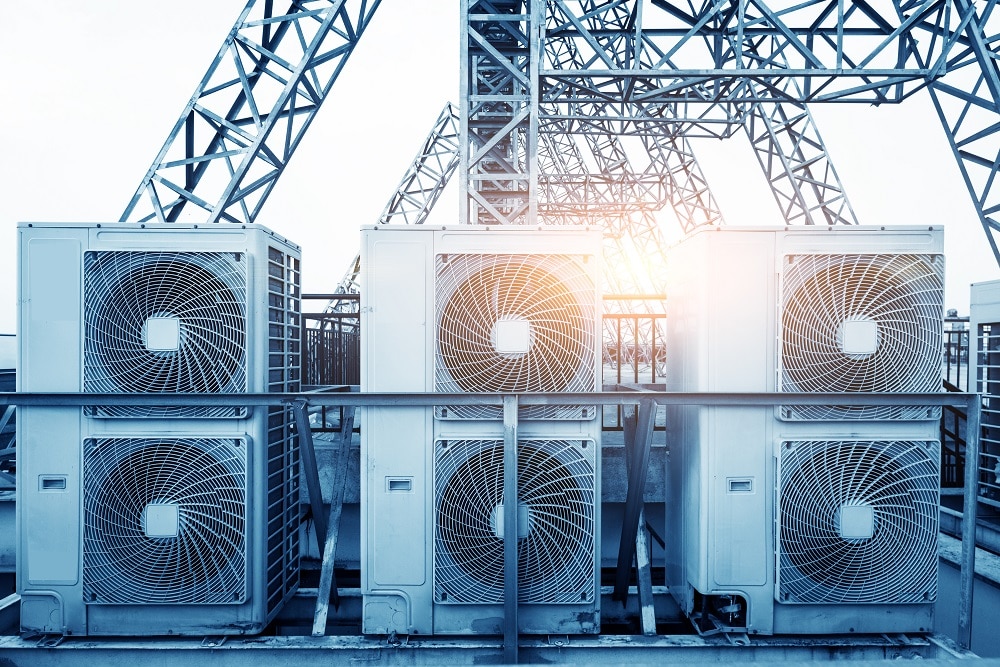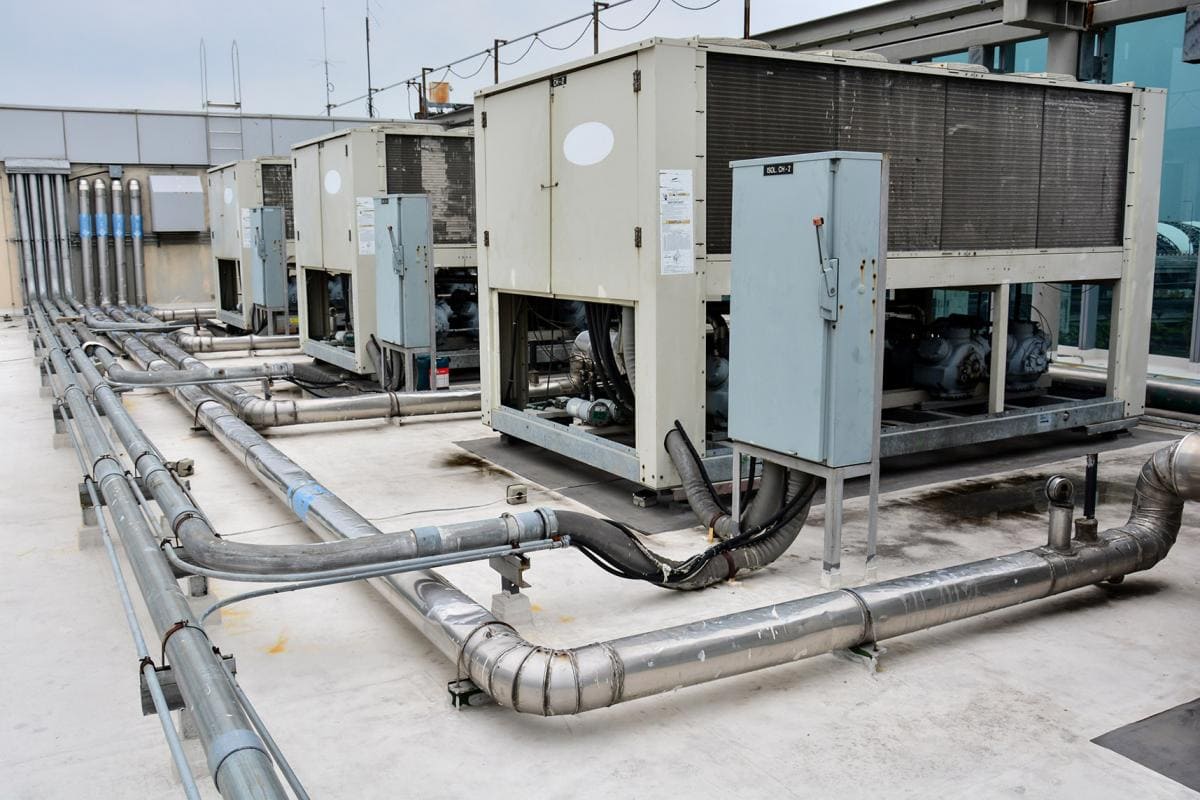Discover how HVAC experts deliver repair services with accuracy
Discovering the Important Elements of an Efficient Heating And Cooling System
A reliable HVAC system is improved numerous essential elements that work in consistency. Each part, from the thermostat to the ductwork, plays a vital role in maintaining comfort and energy effectiveness. Comprehending these elements is crucial for maximizing efficiency and improving indoor air top quality. As one checks out these parts, the elaborate relationships in between them disclose insights into improving total system effectiveness. What details elements add most to this performance?
The Role of the Thermostat in A/c Efficiency

Although commonly ignored, the thermostat plays a vital role in the effectiveness of a/c systems. HVAC experts. This little device acts as the key nerve center, managing temperature settings and making certain excellent convenience within a space. By properly sensing the ambient temperature level, the thermostat interacts with the heating, air, and air flow conditioning systems to preserve the desired environment
A reliable thermostat decreases power consumption by activating the HVAC system only when essential, thus protecting against excessive heating or air conditioning. Modern programmable and clever thermostats enhance this efficiency further by enabling customers to set timetables and from another location readjust settings, adapting to everyday routines.
The placement of the thermostat is vital; improper area can lead to unreliable temperature level readings, resulting in inefficient operation. On the whole, a well-functioning thermostat not only enhances convenience however also adds noticeably to power cost savings and the long life of the heating and cooling system.
Comprehending the Value of Air Filters
Air filters offer an important feature in heating and cooling systems by assuring that the air circulating within an area continues to be clean and healthy and balanced. These filters trap dust, irritants, and other toxins, preventing them from being recirculated throughout the atmosphere. By capturing these bits, air filters add to improved interior air quality, which can considerably benefit occupants' health and wellness, particularly those with allergies or respiratory conditions.
Furthermore, keeping tidy air filters boosts the effectiveness of heating and cooling systems. Stopped up filters can restrict airflow, causing the system to function tougher to keep wanted temperature levels, bring about enhanced energy consumption and greater utility bills. Regularly changing or cleansing filters is a vital maintenance step that can prolong the life-span of a/c tools. Eventually, understanding the significance of air filters permits property owners and building managers to take proactive measures to guarantee a well-functioning, efficient heating and cooling system that advertises a comfy and secure interior atmosphere.

The Capability of the Furnace and Heat Pump
Furnaces and warmth pumps are critical parts of heating and cooling systems, liable for providing heat throughout colder months. Heating systems run by heating air via combustion or electric resistance, after that distributing it throughout the home by means of ducts. They normally use fast home heating and can be fueled by gas, electrical energy, or oil, depending on the system type.
Alternatively, heatpump move warmth as opposed to create it. They remove warm from the outdoors air or ground, also in reduced temperature levels, and move it indoors. HVAC experts. This twin capability enables heatpump to also give cooling in warmer months, making them flexible choices for year-round environment control
Both systems need correct maintenance to guarantee performance and longevity. While heating systems stand out in severe cold, heatpump can be helpful in moderate environments. Understanding their unique capabilities help house owners in selecting one of the most suitable alternative for their home heating needs.
Discovering the Cooling System
The cooling unit is a crucial element of HVAC systems, readily available in various types to match different demands. Recognizing useful site the performance ratings of these units is essential for link making informed options regarding power consumption and price. This area will certainly discover the varied sorts of a/c unit and clear up just how efficiency rankings effect efficiency.
Sorts Of Air Conditioners
While various elements affect the selection of air conditioning systems, comprehending the different types available is vital for home owners and structure managers alike. Central air conditioners are developed to cool down whole homes or structures, using a network of ducts for air flow. Window devices use an even more local remedy, ideal for tiny rooms or solitary spaces. Portable a/c unit supply adaptability, allowing users to relocate the device as required. Ductless mini-split systems are an additional choice, integrating the efficiency of main systems with the convenience of zoning, as they call for no ductwork. Lastly, geothermal systems harness the earth's temperature for energy-efficient air conditioning. Each kind comes with distinct advantages, making informed choices necessary for efficient environment control.

Efficiency Ratings Discussed
Understanding performance ratings is important for selecting the ideal a/c unit, as these metrics provide insight into the system's performance and power intake. One of the most common ranking for ac system is the Seasonal Energy Efficiency Proportion (SEER), which determines the cooling output throughout a common air conditioning period divided by the total electrical energy input. A higher SEER suggests better performance. Additionally, the Energy Efficiency Proportion (EER) is used for determining performance under particular conditions. One more important metric is the Power Celebrity accreditation, which signifies that an unit satisfies strict power efficiency standards. By assessing these rankings, consumers can make educated options that not just maximize comfort however also decrease power costs and environmental impact.
The Value of Ductwork and Airflow
Effective ductwork style and airflow management play vital duties in the overall performance and performance of cooling and heating systems. Correct ductwork assurances that conditioned air is dispersed uniformly throughout a room, lessening temperature level fluctuations and improving comfort. Properly designed ducts decrease resistance to air movement, decreasing the workload on cooling and heating tools and ultimately decreasing energy intake.
Air movement management includes purposefully positioning vents and signs up to boost the flow of air. This protects against typical concerns such as chilly or hot areas, which can occur when air movement is obstructed or inadequately well balanced. Furthermore, the ideal air duct materials and insulation can even more enhance performance by lowering warmth loss or gain throughout air transportation.
A reliable ductwork system not just adds to power cost savings yet can also lengthen the lifespan of HVAC devices by minimizing unneeded stress (HVAC experts). Recognizing the importance of ductwork and airflow is essential for achieving peak Heating and cooling system performance.
Regular Upkeep Practices to Improve Efficiency
Routine maintenance methods are important for making sure peak efficiency of HVAC systems. These techniques include regular examinations, cleaning, and necessary fixings to keep the system running successfully. Regularly altering air filters is important, as blocked filters can block airflow and reduce efficiency. Furthermore, service technicians should inspect and clean evaporator and condenser coils to avoid overheating and power wastage.
Annual expert evaluations are also advised, as skilled technicians can determine possible concerns before they rise. Lubricating moving components reduces wear and tear, adding to a longer life expectancy for the system. Making certain that the thermostat operates properly aids in keeping optimal temperature control.
Frequently Asked Questions
How Often Should I Replace My Thermostat?
Thermostats should normally be replaced every 5 to 10 years, depending upon use and technology innovations. Routine checks are recommended to ensure peak performance, particularly if experiencing inconsistent temperature level control or raised energy prices.
What Dimension Air Filter Is Best for My Cooling And Heating System?
The finest size air filter for a heating and cooling system differs by unit style. Commonly, it's vital to seek advice from the proprietor's guidebook or inspect the existing filter dimensions to guarantee peak efficiency and air top quality.
Can I Set Up a Heatpump Myself?
Setting up a warmth pump independently is possible for knowledgeable people, but it calls for knowledge of neighborhood codes and electrical systems. Employing an expert is recommended to guarantee proper installment and optimal system performance.
How Do I Know if My Ductwork Is Effective?
To determine ductwork performance, one should check for leakages, step air flow at vents, examine insulation quality, and review temperature distinctions in between supply and return ducts. Expert analyses can offer thorough understandings into total performance.
What Are Signs My A/c Requirements Immediate Upkeep?
Indicators that a cooling and heating system requires instant maintenance consist of unusual noises, inconsistent temperatures, raised energy bills, undesirable odors, and constant cycling. Addressing these issues immediately can prevent more damage and guarantee height system performance.
Air filters offer an important feature in HVAC systems by guaranteeing that the air flowing within an area continues to be healthy and balanced and clean. Furthermore, preserving tidy air filters boosts the efficiency of Cooling and heating systems. Ductless mini-split systems are one more choice, incorporating the effectiveness of main systems with the convenience of zoning, as they need no ductwork. Understanding performance scores is important for picking the appropriate air conditioning unit, as these more info here metrics supply insight into the system's efficiency and energy intake. The best size air filter for an A/c system differs by device design.